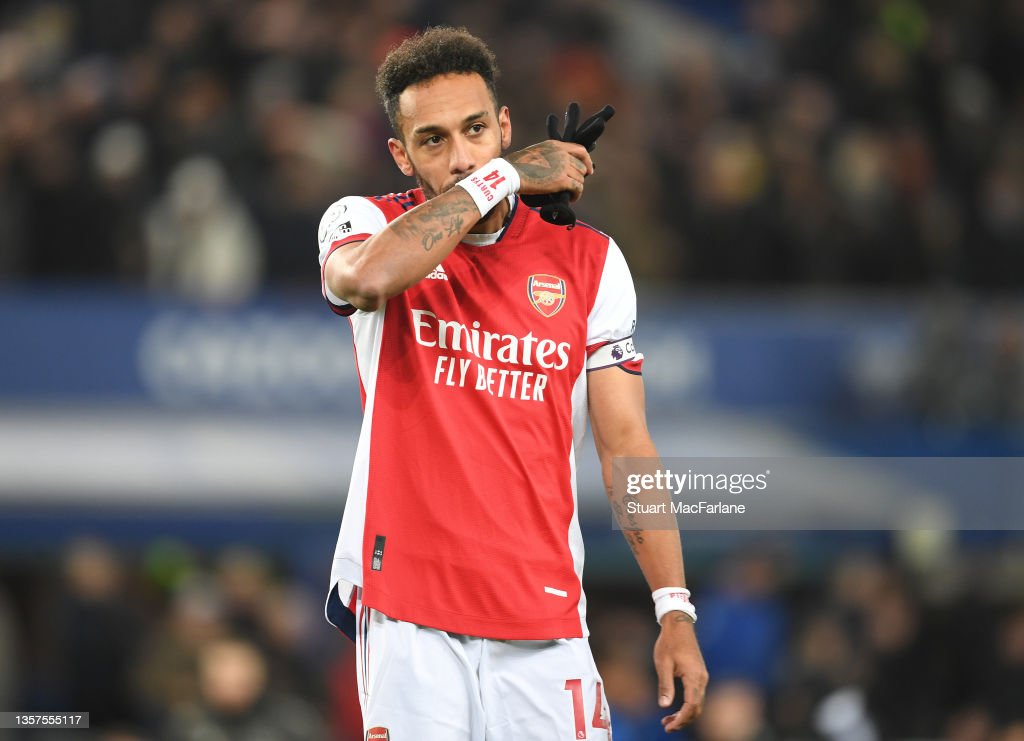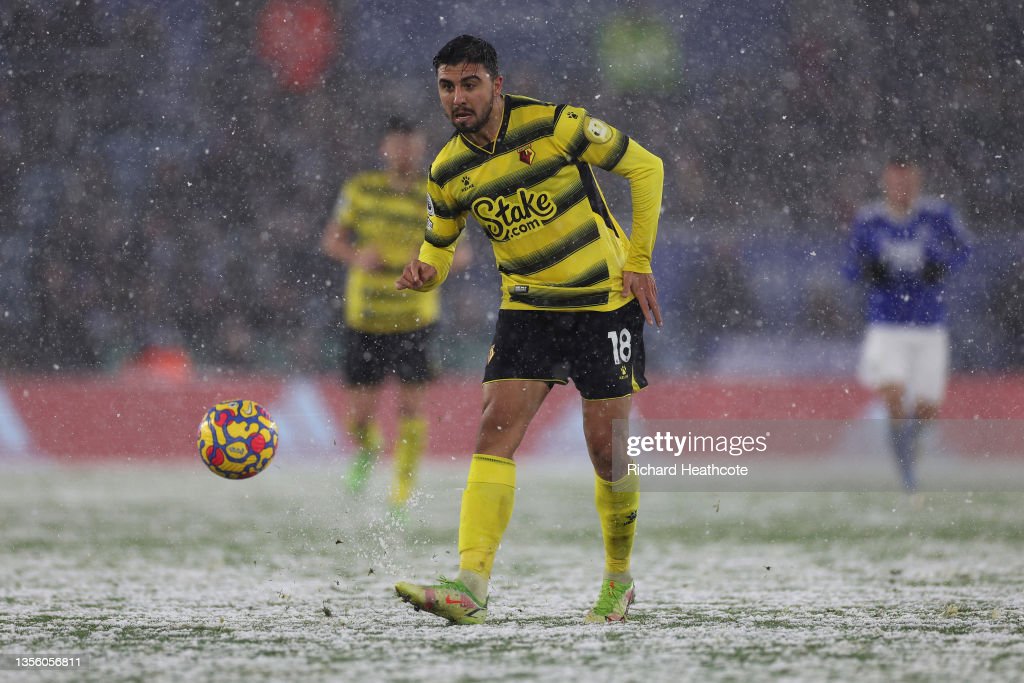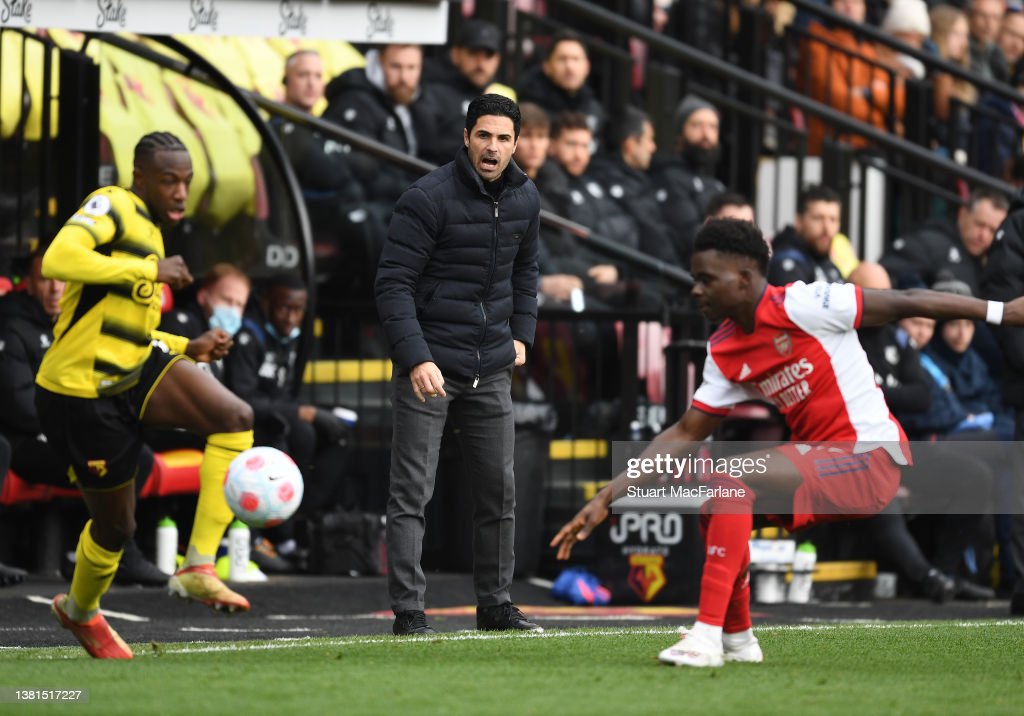If you cast your mind back to Arsenal’s defeat at White Hart Lane last season, Mikel Arteta had huge questions to answer, with Arsenal failing to qualify for the Champions League yet again.
Some conversations took place amongst some Arsenal fans about whether Arteta was good enough to continue as the manager of the North London club. Sky Sports pundit Gary Neville, questioned whether Arteta would even want to remain at Arsenal.
Yet, the board stuck with the Spaniard, backed him in the transfer market and are now reaping the rewards, with the Gunners currently sitting on top of the Premier League.
It is fair to assume that if Mikel Arteta was the Watford manager though, he would have been sacked quite a while ago.
The lack of patience by Gino Pozzo and the Watford hierarchy has meant that many Watford managers have lost their jobs, most recently Rob Edwards.
This caused plenty of frustration amongst Watford fans, with some calling for the owners to sell the football club.
If Gino Pozzo is going to get Watford back on track though, then he could perhaps learn a lot from the club on the other side of the fence at the London Colney training ground.
Granted, Arsenal have a larger income and are a more attractive proposition, but by taking some of the basic runnings of the football club, here is how Watford may learn from Arsenal.
No man is bigger than the club
A key moment during the Mikel Arteta era at Arsenal was the decision to strip club captain Pierre-Emerick Aubameyang of his responsibilities before selling him to Barcelona.
His reasoning was clear; he believed that Aubameyang had attitude problems, was problematic on the pitch and ultimately disrespected his captain's armband. Despite many in the media questioning this decision (notoriously Piers Morgan), Arteta persisted with the belief that it was the right decision. No player is bigger than the rule book, and no one can overstep the mark.

Additionally, other players who simply are not good enough for Arsenal were sold or released. These include the likes of Hector Bellerin, Alexandre Lacazetteand Nicolas Pepe.
This has led to respect for Arteta in the changing room from the Arsenal players, as evidenced by the results on the pitch.
For Watford though, players with both attitude problems and who are not good enough know that regardless of how badly they play, they are still likely to play the following games.
This is due to the large contracts that many are on, and also because the managerial merry-go-round has become so ingrained in the culture, that players know if they play badly, it is the manager who will lose their job.
The likes of Christian Kabasele, William Troost-Ekong and previously Andre Gray, Isaac Success and many more are arguably culpable for this.
It is ultimately not their fault that they are on long contracts. It is the culture set by the owner of the football club who creates an environment where the players will always win, even through bad performances.
What Watford can take from Arsenal, is through clearing out the dead wood while simultaneously backing a manager, slowly a team can be built whereby players are built not only for a system, but also with jeopardy for their continued poor performances.
Backing from the board in the transfer market
There is no point in clearing out the dead wood if they are not going to be replaced sufficiently with players who are actually an upgrade.
While the Kronke ownership of Arsenal has been divisive and controversial at times, there is no doubting that their investment, along with the work of Edu Gaspar has been instrumental in Arteta’s revolution.
Dating back to last summer, the signings of Aaron Ramsdale, Ben White and Gabriel have proved to be smart signings. This summer, securing the signatures of Gabriel Jesus and Oleksandr Zinchenko have fired Arsenal to the top of the Premier League.
There are still areas of the pitch that can arguably be strengthened, but the manager has been given the resources to rebuild this Arsenal team and to make them stronger.
On the other hand, Watford have failed to back their managers for years now. Whether it was not investing in the defence under Javi Gracia or failing to back Rob Edwards “come hell or high water” the lack of investment in the side has allowed pretty much every area of the pitch to go stale.
Indeed, the market following Covid, Brexit and a couple of relegations has not helped, but there was still money thrown at certain players, such as Danny Rose and Ozan Tufan who had close to no impact.

This money could have been used elsewhere and more wisely.
Football is not Fifa or Football Manager. It is unrealistic to expect a club of Watford’s size to sign Messi, Haaland and Mbappe. However, it is reasonable to ask serious questions on how the recruitment has failed over the past few seasons.
Watford can thus take great value in the way that Arsenal were patient in the window, upgraded in key areas and allowed Arteta to build a fantastic side.
Sticking with the manager through the bad times
With backing the manager in the transfer market, also comes sticking with them through the bad moments.
There have been times where Mikel Arteta has seemed to be on the brink of being sacked.
From losing out on a top four spot, failing to qualify for Europe at all and losing to Nottingham Forest in the FA Cup, there have been a myriad of occasions where Gunners fans have called for the head of the Spaniard.
Yet, the club stood by Arteta and are now reaping the rewards. The players' poor performances would not be rewarded with a change of manager; either they would have to perform better or be shown the door.
For Watford though, managers are sacked at every opportunity it seems. Three losses on the bounce? Questions will be being asked already by those in the boardroom.
It creates a toxic atmosphere where as explained already, there is no jeopardy for the players who perform badly.
The manager sometimes needs unconditional support from the board, and Mikel Arteta has had that, through the good times and the bad.
It is time for Watford to learn from this, and begin to trust some sort of process.
Developing young players
Gabriel Martinelli, Emile Smith Rowe, William Saliba and Bukayo Saka are all on a long list of names for players that Mikel Arteta has developed while at Arsenal.
Arteta has also given opportunities to the likes of Charlie Patino in cup competitions, before sending him out on loan to Blackpool in the Championship.
This not only motivates academy players to work harder as there is a clear path to the first team, but it also gives the fans someone to relate to; someone who is from the local area who has grown up with the football club in their environment.
Watford’s use of their academy over the previous seasons has been close to non-existent. Fans have become increasingly frustrated by the lack of homegrown products at the football club, and believe it is something that needs to change.
The squad is made up of players who are mainly past the peak of their careers and are on downwards trajectories. There is no real motivation or a burning desire to make something for themselves in their Watford careers because of this.
Bringing in some more academy products will help massively in repairing the fracture between the club and the fans which is prominent at the moment.
What next?
As seen at Arsenal, it is by no means going to be a quick fix for Watford.
It may take a few seasons, but Gino Pozzo now needs to earn back the trust of Watford fans, if indeed he decides to stick around.
Watford host Norwich City on Saturday evening, which will be a great time to begin the turnaround and potential redemption of Gino Pozzo.









































